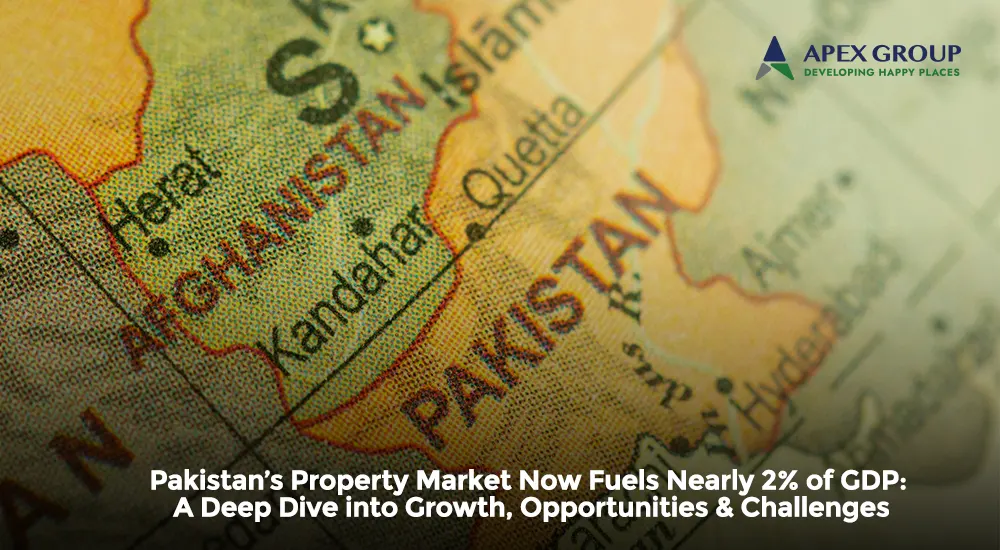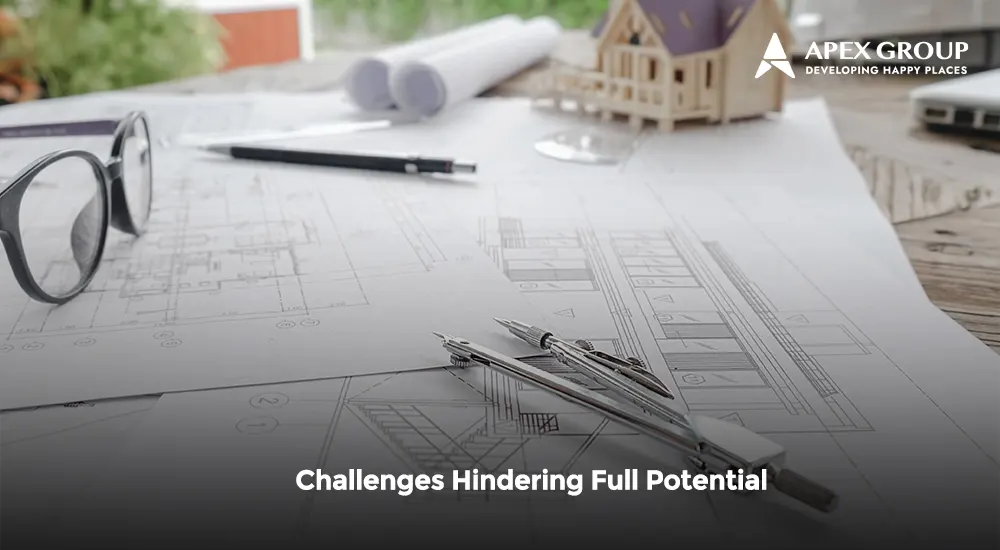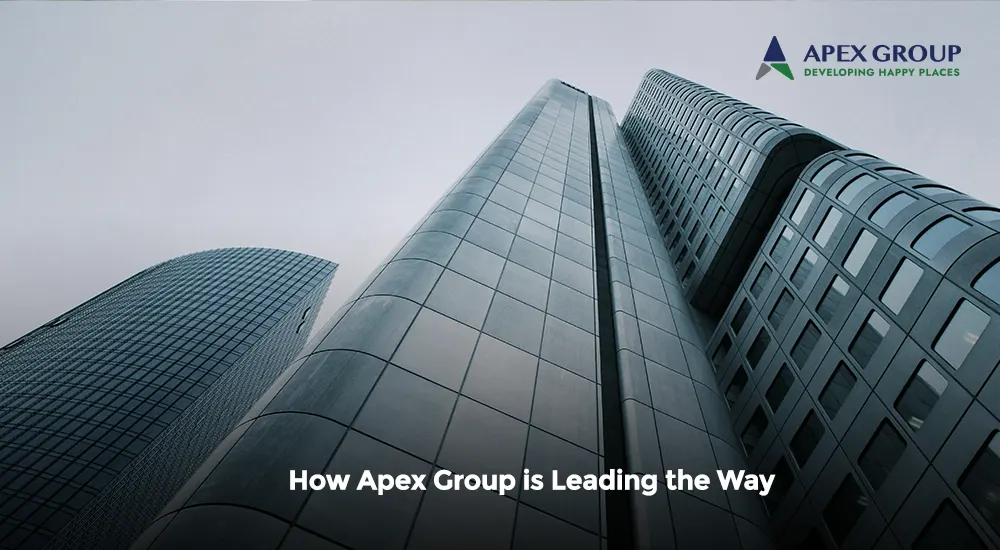Quick Links
Get in Touch
- (042) 111 300 600
- +92 3041111739
- info@apexgroup.pk
- 1st Floor, IEP Building Liberty Round About Gulberg |||, Lahore
Join us
Get updates on special events

Growing Real Estate in Pakistan’s Economic Automobile As one of the most significant determinants of any country’s economic growth, the role of real estate is one of prime importance (Source Architects 2007). The property industry in Pakistan has become one of the up-and-coming business sectors of the economy, it contributes nearly 2% of our GDP. This is no small accomplishment in an emerging country whose traditional sectors, particularly agriculture and textiles, have held sway. Real estate is not only driving urban development but is becoming a major economic multiplier for construction, finance, retail and service. 2025 sees continued growth in real estate Real estate growth across the next 10 years is driven by urbanisation, middle-class expansion, better infrastructure, and a change in investment patterns. It reflects economic growth and a force for it. This blog investigates how and why the property market is greasing the wheels of Pakistan GDP, the sectors it is greasing, the headwinds that it faces and the path to progress for developers, policymakers and investors.
The Numbers Behind the Growth
According to estimates from the Pakistan Bureau of Statistics and leading market research firms:
What’s Fueling the Property Market?
Several macro and microeconomic trends have played a role in real estate’s rising GDP contribution:
Key Sectors Impacted by Real Estate Growth
Case Study: Lahore’s Real Estate Boom
Lahore has become an attractive place for real estate investment. The construction of Ring Road, Orange Line Metro, and the upcoming Ravi Urban Development Project has made Lahore lucrative for the investors whether they are locals or foreigners. Projects like Urban Enclave, Lake City, LDA City have not only helped buyers from elsewhere in Pakistan but even among the diaspora with their facilities, payment plans, and prospects. These structures are not only reshaping the skyline but also hugely adding to the GDP of the city and the nation.
Government Policies & Reforms Driving Growth

Despite its size and impact, Pakistan’s property sector faces significant roadblocks:
Role of Technology in Enhancing Sector Efficiency
Future Outlook: Can Real Estate Contribute 5% to GDP?
Despite this, the current contribution is close to 2% and if with proper policy direction and investments, real estate as an industry is able to contribute 4-5% of GDP in next 10 years. This will require:

At Apex Group, we don’t simply construct structures; we build communities, value, and lasting change. As a real estate development, marketing, construction and project management group, Apex Group can boast of an exemplary track record of managing, building and delivering superior quality real estate. With integrated marketing plans and forward-thinking projects along with sustained infrastructure solutions, our vision is parallel with the Pakistan’s economic objectives. From fast and straight-forward development, test and deployment to highly reliable and globally distributed production environments Our 360° services keep our clients investments safe, future-proof and conducive to growth.
Conclusion: A Sector with Untapped Potential
This added degree of real estate in now making almost 2% of the Pakistan’s GDP indicates its potential. It is not merely a sector-it is the engine of employment generation, industrial growth, urban development and wealth production. And with further reform, technology uptake and favourable partnerships, the potential for growth in the sector is exponential. Real estate is a pillar of Pakistan’s economic future, the sooner investors, developers, policymakers, and citizens begin to understand that. If you want to join this transformation, Apex Group is here to guide you through every stage.
Get updates on special events
Secure your success with our lucrative investment opportunities and unmatched expertise.
Get in touch with our professional and efficient team at Apex Group and elevate your lifestyle.